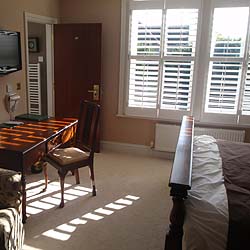
|
Training, Open Source Computer Languages |
| Home | Accessibility | Courses | The Mouth | Resources | Site Map | About Us | Contact |
| For 2023 (and 2024 ...) - we are now fully retired from IT training. We have made many, many friends over 25 years of teaching about Python, Tcl, Perl, PHP, Lua, Java, C and C++ - and MySQL, Linux and Solaris/SunOS too. Our training notes are now very much out of date, but due to upward compatability most of our examples remain operational and even relevant ad you are welcome to make us if them "as seen" and at your own risk. Lisa and I (Graham) now live in what was our training centre in Melksham - happy to meet with former delegates here - but do check ahead before coming round. We are far from inactive - rather, enjoying the times that we are retired but still healthy enough in mind and body to be active! I am also active in many other area and still look after a lot of web sites - you can find an index ((here)) |
 Tcl and Tk Training News
Next Public Course Dates
Link on individual courses for more details and further dates. We can also run a private tailored course at our centre or a private course at your office. | Tcl Programming - training course
The Tcl programming language, and Expect
DESCRIPTION
This course covers the fundamentals of the Tcl
programming language. You'll learn about Tcl commands, quoting
conventions and control structures before we move on to cover
topics such as strings, lists, arrays and regular expressions.Further topics covered on the course include writing your own commands (procs), packages, libraries, namespaces and other - you'll leave the course with a thorough grounding in Tcl. Tcl is often used as an embedded language, and we'll show you how it's embedded within applications such as Expect, and briefly how it's used in association with Tk. PREREQUISITES
Practical experience in programming in another
computer language. If you are new to computer programming,
please book on our Learning to program in Tcl course instead.
Getting the most from your Well House Consultants course [Link] COURSE CONTENT
Detailed description: [Link]
TUTOR and COURSE AUTHOR
Graham Ellis - graham@wellho.net [email] [about Graham]
VENUE
Melksham, Wiltshire
, England. A taxi transfer can be arranged if you'll be arriving by air
from United States.
Private Courses can be arranged on site in your country.
Public courses run at Well House Manor - our own purpose fitted training centre and business hotel / conference centre in Melksham. • Download Melksham Map - [pdf file (750k)] • Google Map - [Link] PRICE
FOLLOW UPS
If you'll be using Tcl in association with the Tk
graphic widget set, you'll want to stay on for the Tcl/Tk
course, which runs the following two days.
Upon completion of your course, you'll have online access to the source code of all the examples from the course, and you'll have access to the "Ask the Tutor" forum where you can raise questions. We also encourage you to email the tutor, and to visit us again to use our library as appropriate. Certification? - [Link] FOR FURTHER INFORMATION
Public (scheduled) courses -- http://www.wellho.net/course/ctc.htmlFor more information about our public courses in general, such as class size, course times, materials provided, special requests, accommodation list, finding our centre, etc. Terms and Conditions -- http://www.wellho.net/net/terms.html Covering topics such as delegate substitution, payment, cancellation policy and other matters. | ||||||||||||||||||||||||||||||||||
PH: 01144 1225 708225 • EMAIL: info@wellho.net • WEB: http://www.wellho.net • SKYPE: wellho
PAGE: http://www.wellho.net/course/tbfull.html • PAGE BUILT: Sun Oct 11 13:25:59 2020 • BUILD SYSTEM: JelliaJamb